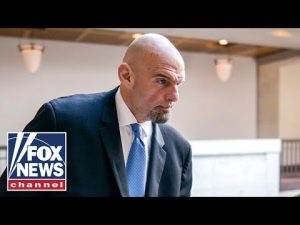President Trump’s blunt promise to “hit” Venezuelan cartels “hard” if they “come by land” is not empty rhetoric; it comes on the heels of a deliberate policy shift after U.S. forces began striking suspected drug-running boats in the Caribbean. The administration has openly framed these actions as necessary to choke off the flow of deadly narcotics into American communities, and the president has signaled a willingness to escalate if traffickers try to reroute over land.
Since early September, U.S. military strikes have destroyed multiple vessels alleged to be tied to Venezuelan criminal groups, with numbers of casualties mounting and a disruptive effect on maritime trafficking routes. The administration has designated some of these groups as terrorist or unlawful combatant organizations, and officials have argued that conventional law enforcement tools were insufficient against transnational narco-terror networks.
Washington has backed these kinetic moves with a visible naval buildup in the southern Caribbean, including the deployment of a major aircraft carrier strike group to bolster interdiction and surveillance operations. This forward posture sends a clear message: the United States will protect its homeland and neighbors, and it will use decisive military power when necessary to do so.
Legally, the White House has treated the campaign as falling under a “non-international armed conflict” framework in order to lawfully target unlawful combatants linked to the trafficking networks, a step that some in Washington insisted could be necessary to give commanders the authority to act. That framing has drawn predictable criticism from opponents who prefer hand-wringing to results while American towns are flooded with fentanyl and other poison.
Commentators like Glenn Beck have even reached into history to explain the strategy, invoking dramatic artifacts and analogies to Operation Valkyrie to argue that strong, targeted action can break criminal leadership and send a message that chaos will not be tolerated. Whether you like Beck’s theatrical style or not, the underlying point is plain: deterrence requires credibility, and the administration is trying to make that credibility unmistakable.
Americans tired of watching their neighbors die from overdoses and their cities bleed crime should cheer a president who finally matches words with action. The alternative—endless legal dithering, virtue-signaling, and appeals to international niceties—means more dead kids, more ruined families, and more power for dictators who profit from misery. This is about defending our streets and our children first, not about handing moral lectures to tyrants who export chaos.
Yes, the risk of escalation is real, and savvy leadership must pair muscle with prudence: clear objectives, defined rules of engagement, and real oversight from a Congress unwilling to bet our troops or honor on open-ended adventurism. But prudence does not mean paralysis. When adversaries and criminal cartels calculate that the United States will blink, they act with impunity; firmness restores deterrence and buys time for diplomatic pressure and law enforcement cooperation.
Patriots should demand two things from their leaders: resolve and transparency. Back the mission to stop the poison at its source, insist on lawful safeguards, and refuse the siren calls of the same coastal elites who would rather posture than protect. If we are serious about saving American lives and restoring order, we must stand with the commanders who finally decided to stop letting the cartels treat our country like their personal highway.







